This week the Nepal Federal Health System Team published its latest paper the international journal Health Research Policy & Systems [1]. This Open Access paper ‘Overcoming the challenges facing Nepal’s health system during federalisation: an analysis of health system building blocks‘ reports on two separate methods: interviews and participatory policy analysis workshops, to offer an in-depth understanding of stakeholders’ practical learning, experiences, and opinions. Participants included policymakers, health service providers, local elected members, and other local stakeholders. All interviews were audio-recorded, transcribed, translated into English, and analysed thematically using the six WHO (World Health Organization) health system building blocks [2] as its theoretical framework. 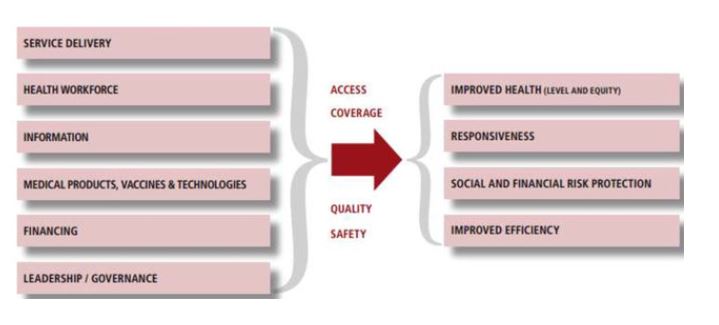
Wasti et al. found that participants noted both opportunities and challenges around each building block. Identified opportunities were: (a) tailored local health policies and plans, (b) improved health governance at the municipality level, (c) improved health infrastructure and service capacity, (d) improved outreach services, (e) increased resources (health budgets, staffing, and supplies), and (f) improved real-time data reporting from health facilities. At the same time, several challenges were identified including: (a) poor coordination between the tiers of government, (b) delayed release of funds, (c) maldistribution of staff, (d) problems over procurement, and (e) limited monitoring and supervision of the quality of service delivery and data reporting.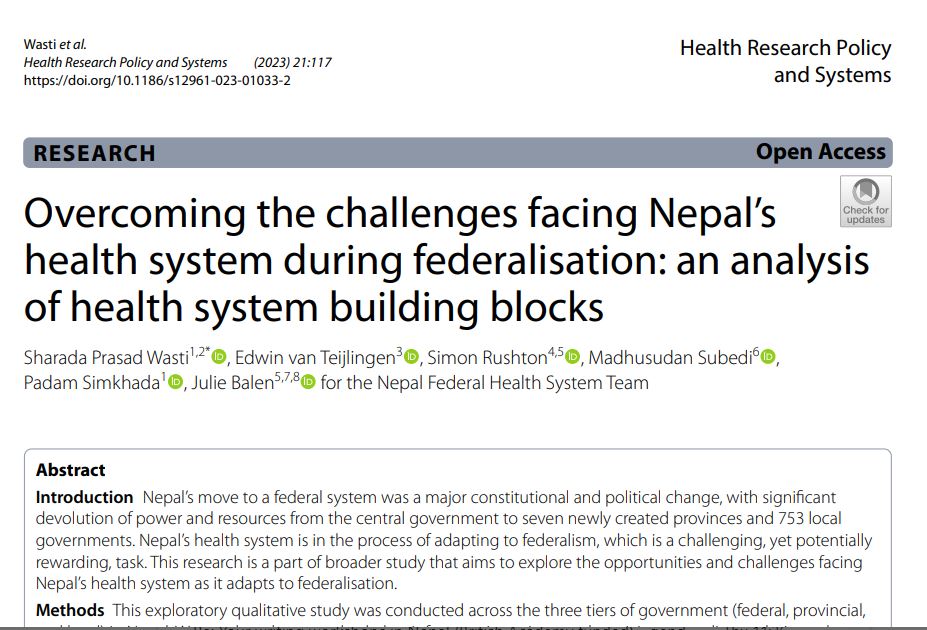
The paper concludes that since federalisation, Nepal’s health system performance is improving, although much remains to be accomplished. For Nepal to succeed in its federalisation process, understanding the challenges and opportunities is vital to improving each level of the health system in terms of (a) leadership and governance, (b) service delivery, (c) health financing, (d) health workforce, (e) access to essential medicines and technologies and (f) health information system.
This publication is the fourth one originating from our Nepal Federal Health System Project, our major collaborative project examining the consequences for the health system of Nepal’s move to a federal government structure [2-5]. This is a joint project (2020-2024) led by the University of Sheffield and in collaboration with Bournemouth University, the University of Huddersfield, Manmohan Memorial Institute of Health Sciences (MMIHS) and PHASE Nepal. This longitudinal interdisciplinary study is funded by the UK Health Systems Research Initiative [Grant ref. MR/T023554/1].
Prof. Edwin van Teijlingen
Centre for Midwifery & Women’s Health (CMWH)
References:
- Wasti, S.P., van Teijlingen, E.,Rushton, S., Subedi, M., Simkhada, P., Balen, J. for the Nepal Federal Health System Team (2023) Overcoming the Challenges Facing Nepal’s Health System During Federalisation: An Analysis of Health System Building Blocks, Health Research Policy & Systems 21(117) https://doi.org/10.1186/s12961-023-01033-2
- World Health Organization (2007) Everybody’s business: strengthening health systems to improve health outcomes. WHO’s Framework for Action. Geneva: World Health Organization.
- Sapkota, S., Panday, S., Wasti, S.P., Lee, A., Balen, J., van Teijlingen, E., Rushton, S., Subedi, M., Gautam, S., Karki., J., Adhikary, P., Marahatta, S., Simkhada, P., for the Nepal Federal Health System Team (2022) Health System Strengthening: The Role of Public Health in Federal Nepal, Journal of the Nepal Public Health Association 7(1):36-42.
- Adhikary, P., Balen, J., Gautam, S., Ghimire, S., Karki, J., Lee, A.C.K., Marahatta, S.B., Panday, S., Pohl, G., Rushton, S., Sapkota, S., Simkhada, P.P., Subedi, M., van Teijlingen, E. for the Nepal Federal Health System team (2020) The COVID-19 pandemic in Nepal: Emerging evidence on the effectiveness of action by, and cooperation between, different levels of government in a federal system, Journal of Karnali Academy of Health Sciences 3 (3): 1-11.
- Rushton, S., Pandey, S., van Teijlingen, E., Subedi, M., Balen, J., Karki, J., Simkhada, P. on behalf of the Nepal Federal Health System Team (2021) An Investigation into the Impact of Decentralization on the Health System of Nepal. Journal of Manmohan Memorial Institute of Health Sciences, 7(1): 3–14. https://doi.org/10.3126/jmmihs.v7i1.43146
 Today we had the introductory meeting of our recently funded ‘British Academy Project on Evidence-Informed Policymaking in Nepal’, the project is coordinated by the University of Huddersfield by Prof. Padam Simkhada, who is also Visiting Professor in Bournemouth University’s (BU) Faculty of Health & Social Sciences. The co-investigator at BU is Dr. Pramod Regmi (Principal Academic in International Health), with other co-applicants based at the Keele University, Canterbury Christ Church University, the University of Sheffield, the University of Chester, the Nepal Health Research Council (NHRC), Kathmandu University and the research-based charity Green Tara Nepal.
Today we had the introductory meeting of our recently funded ‘British Academy Project on Evidence-Informed Policymaking in Nepal’, the project is coordinated by the University of Huddersfield by Prof. Padam Simkhada, who is also Visiting Professor in Bournemouth University’s (BU) Faculty of Health & Social Sciences. The co-investigator at BU is Dr. Pramod Regmi (Principal Academic in International Health), with other co-applicants based at the Keele University, Canterbury Christ Church University, the University of Sheffield, the University of Chester, the Nepal Health Research Council (NHRC), Kathmandu University and the research-based charity Green Tara Nepal.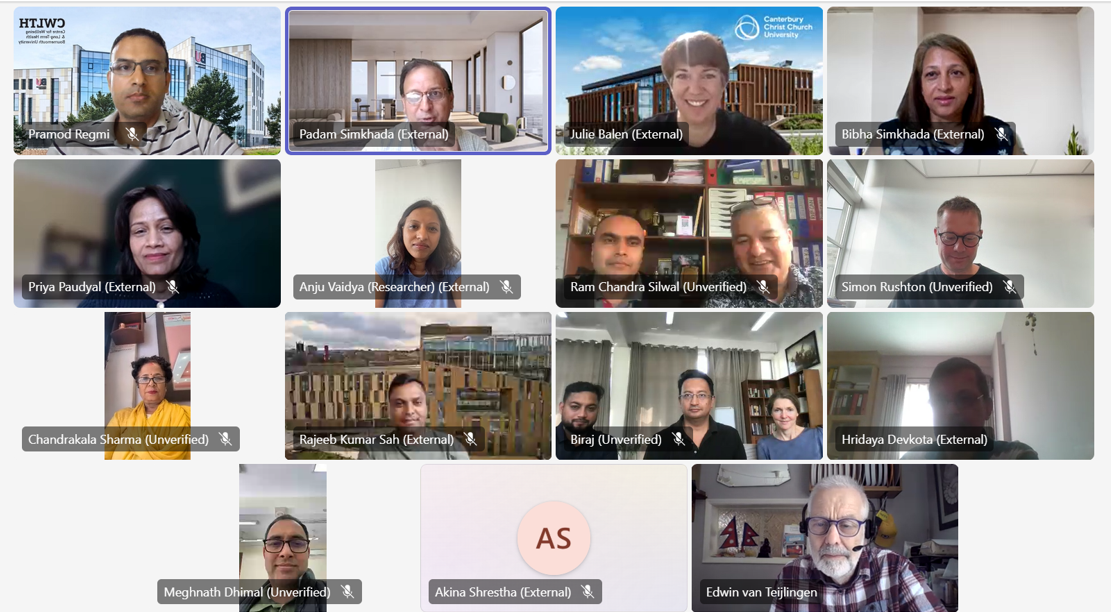

 Last month we reported on this Bournemouth University Research Blog (click here!) that Ms. Amshu Dhakal, presented findings from our Nepal Federal Health System Project in Nepal. Amshu’s presentation at the Nepal Health Conclave 2024, organised by the Ministry of Health and Population and supported by WHO (World Health Organization) Nepal and UNFPA, resulted in an online article in Nepal. This article in Nepali in Swasthya Khabar Patrika features lessons learnt and evidence from our research project “The Impact of Federalisation on the Health System of Nepal.”
Last month we reported on this Bournemouth University Research Blog (click here!) that Ms. Amshu Dhakal, presented findings from our Nepal Federal Health System Project in Nepal. Amshu’s presentation at the Nepal Health Conclave 2024, organised by the Ministry of Health and Population and supported by WHO (World Health Organization) Nepal and UNFPA, resulted in an online article in Nepal. This article in Nepali in Swasthya Khabar Patrika features lessons learnt and evidence from our research project “The Impact of Federalisation on the Health System of Nepal.”
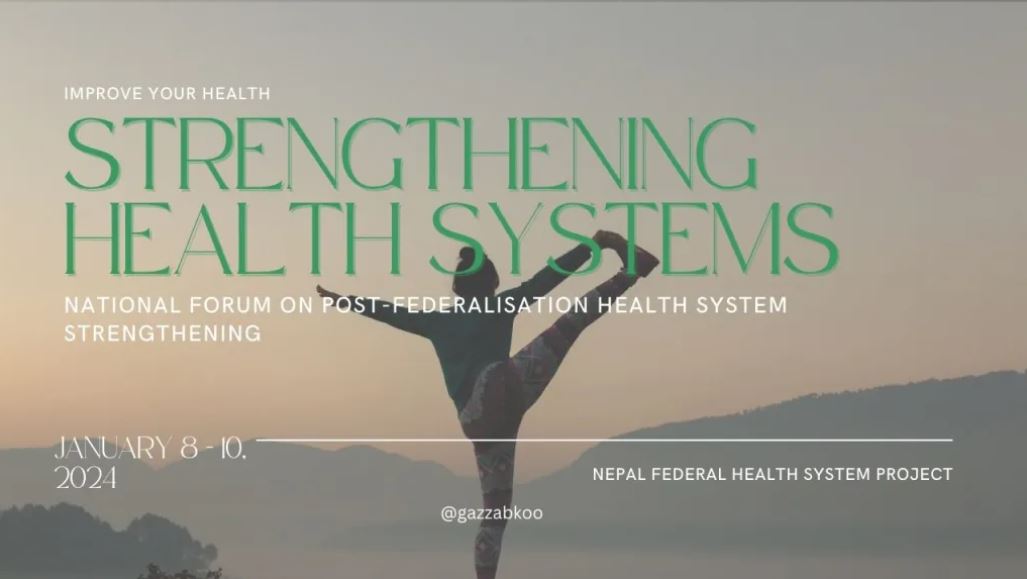 This is one of several news articles from this project which have appeared in both English and Nepali in national media in Nepal.
This is one of several news articles from this project which have appeared in both English and Nepali in national media in Nepal. 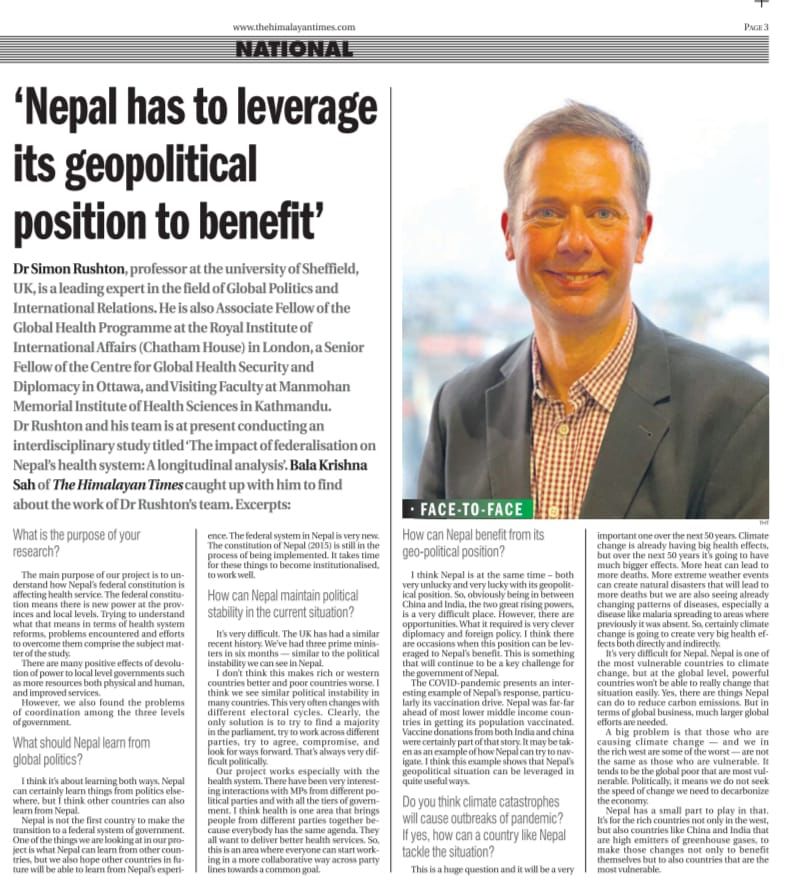 Our interdisciplinary research project ‘
Our interdisciplinary research project ‘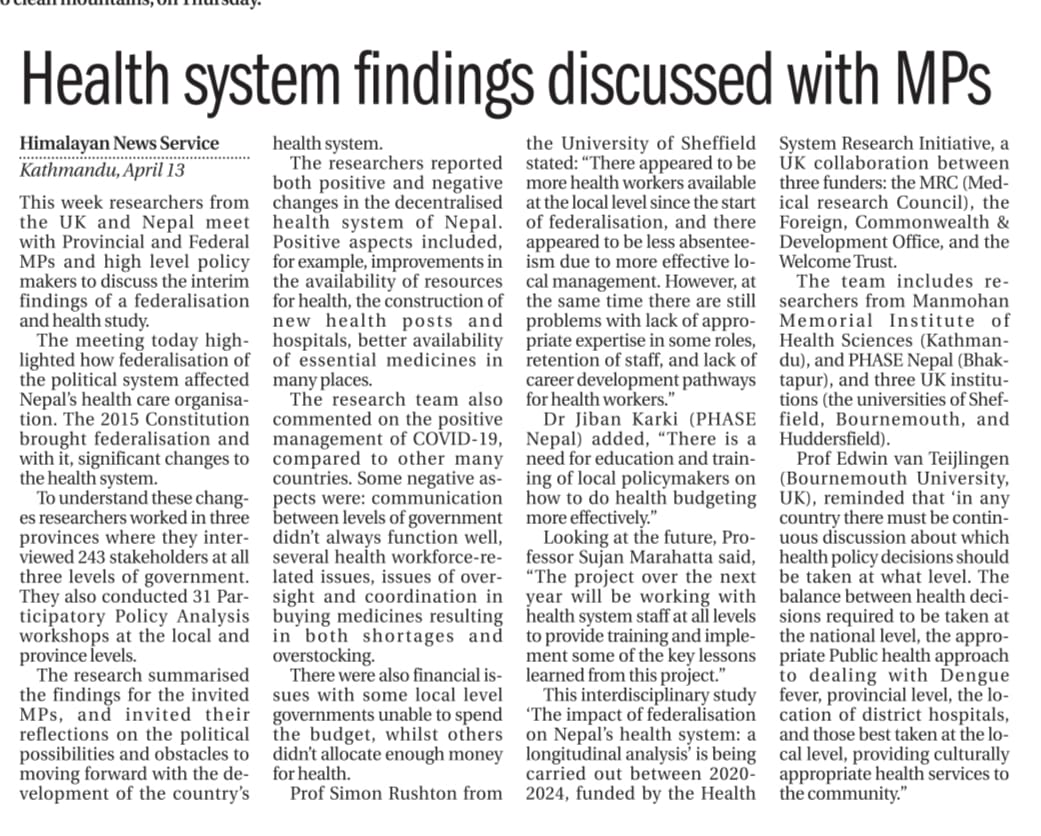
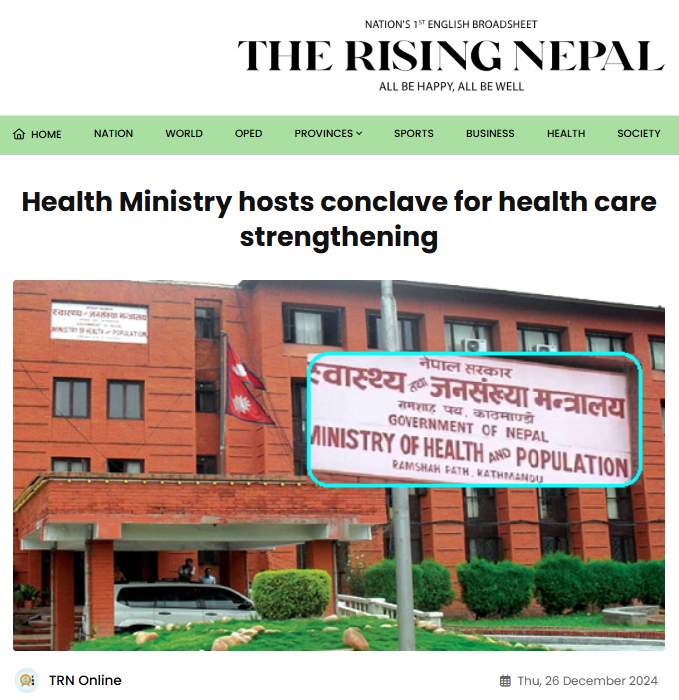
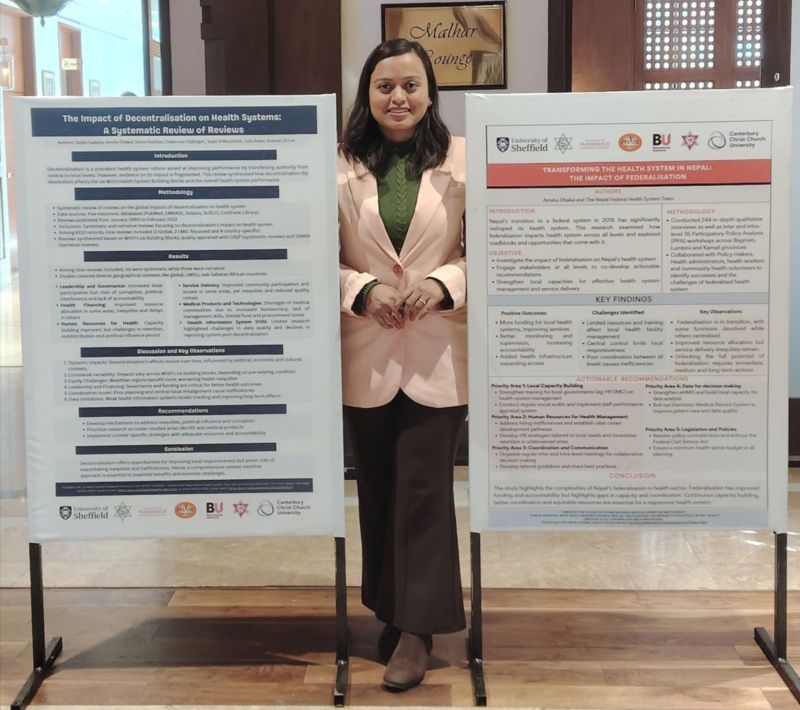
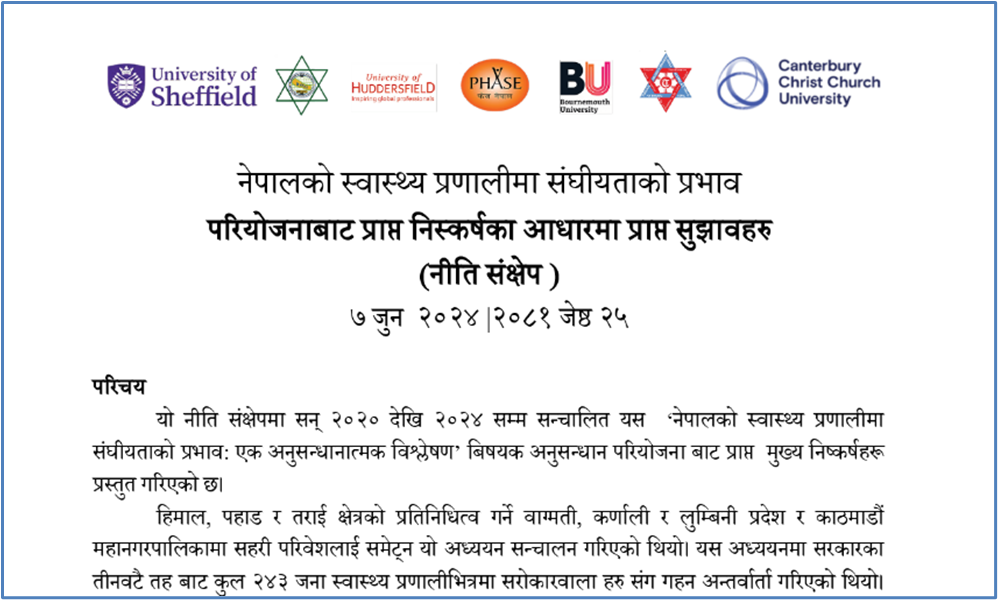




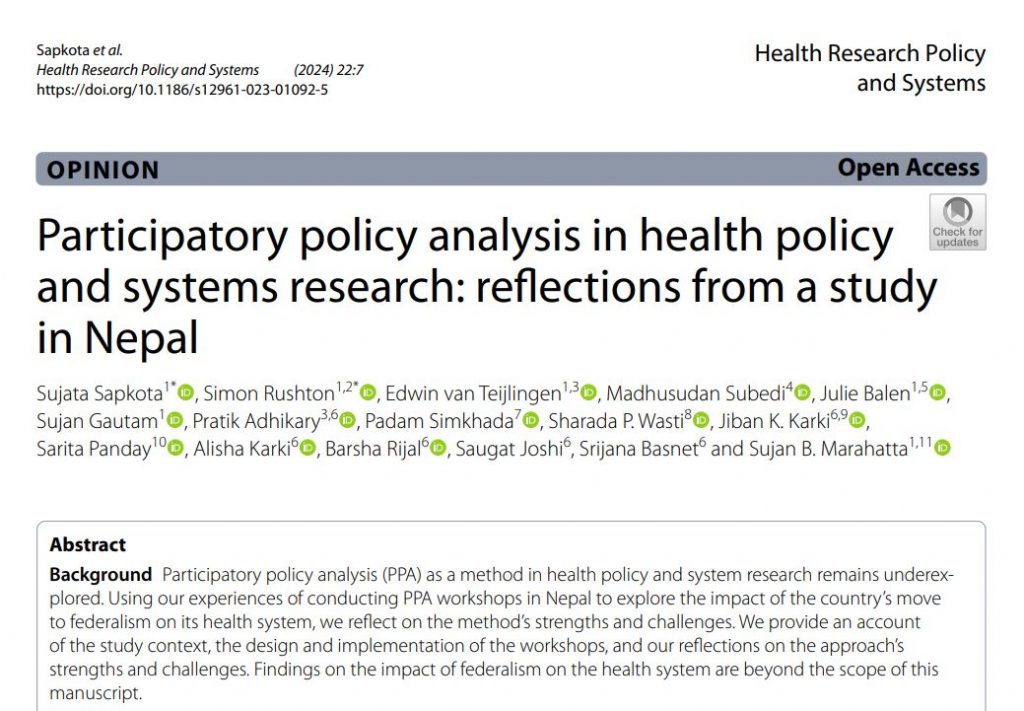
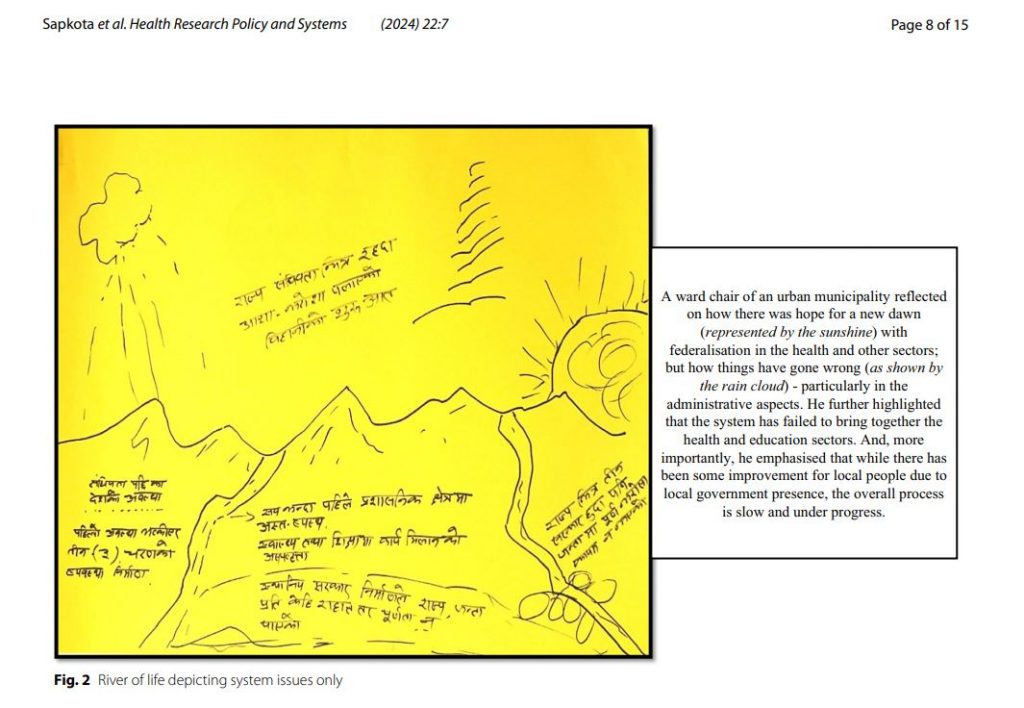
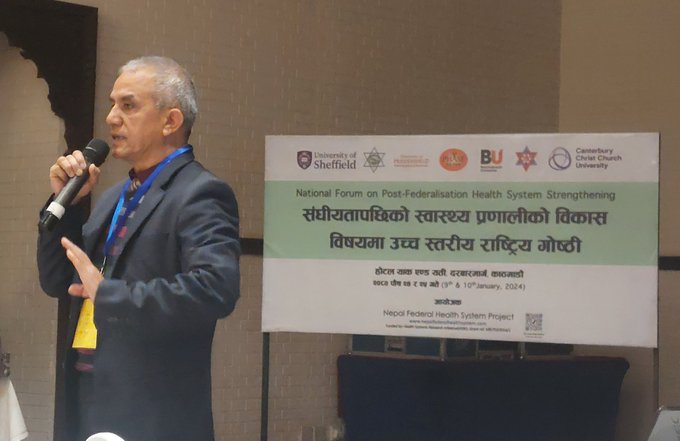
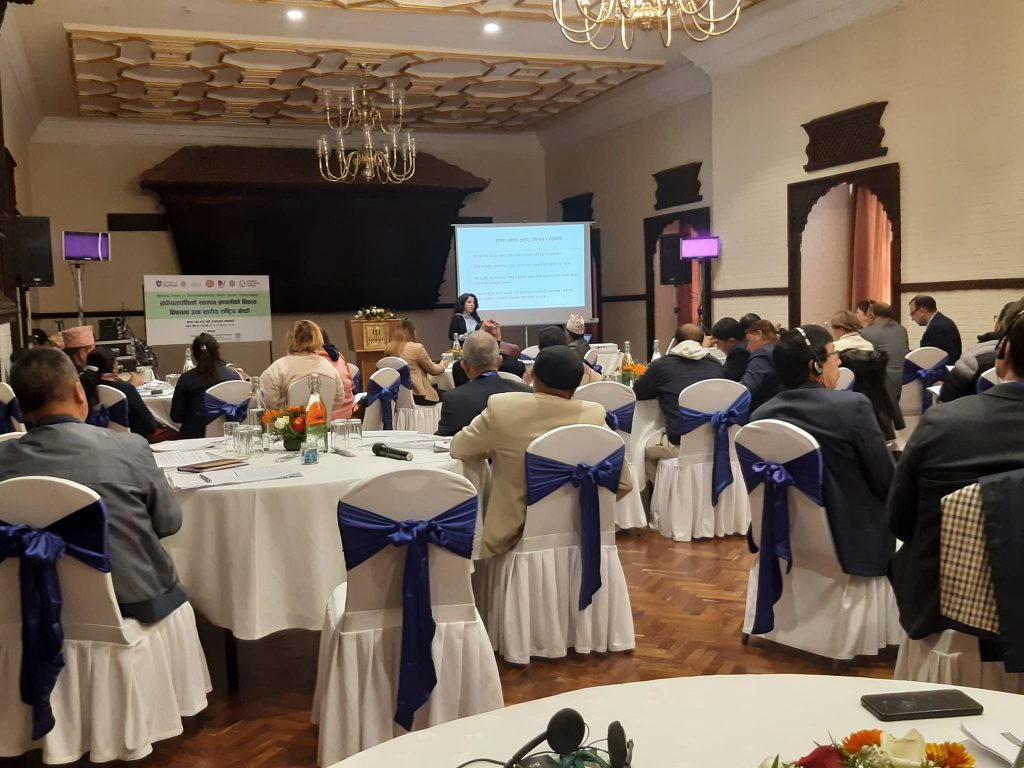
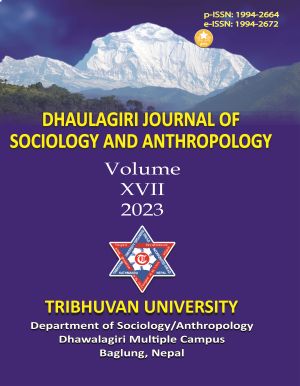
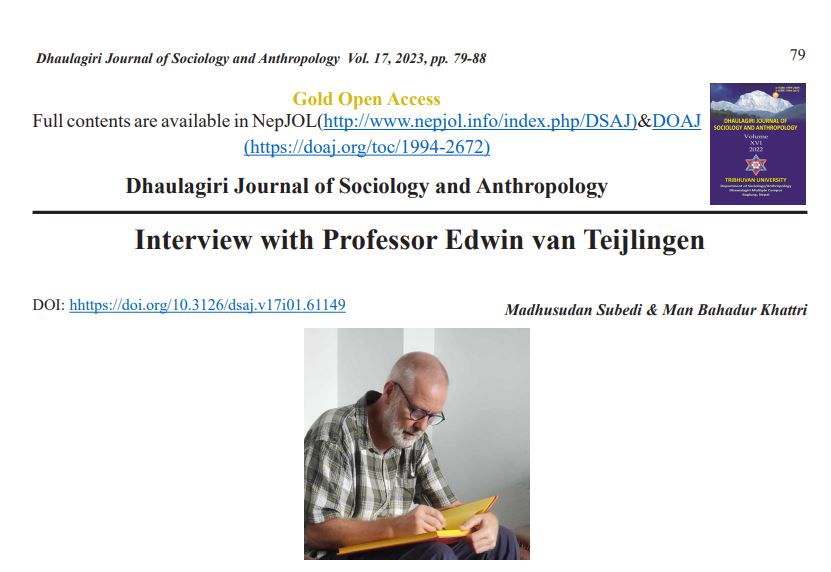
 Today we received notice that our paper ‘The impacts of decentralisation on health systems: a systematic review of reviews’ has been accepted by the international journal BMJ Global Health. [1] This review of reviews was produced as part of the Nepal Federal Health System Project, examining the consequences for the health system of Nepal’s move to a federal government structure. This is a joint project (2020-2024) led by the University of Sheffield and in collaboration with Bournemouth University, the University of Huddersfield,
Today we received notice that our paper ‘The impacts of decentralisation on health systems: a systematic review of reviews’ has been accepted by the international journal BMJ Global Health. [1] This review of reviews was produced as part of the Nepal Federal Health System Project, examining the consequences for the health system of Nepal’s move to a federal government structure. This is a joint project (2020-2024) led by the University of Sheffield and in collaboration with Bournemouth University, the University of Huddersfield, 



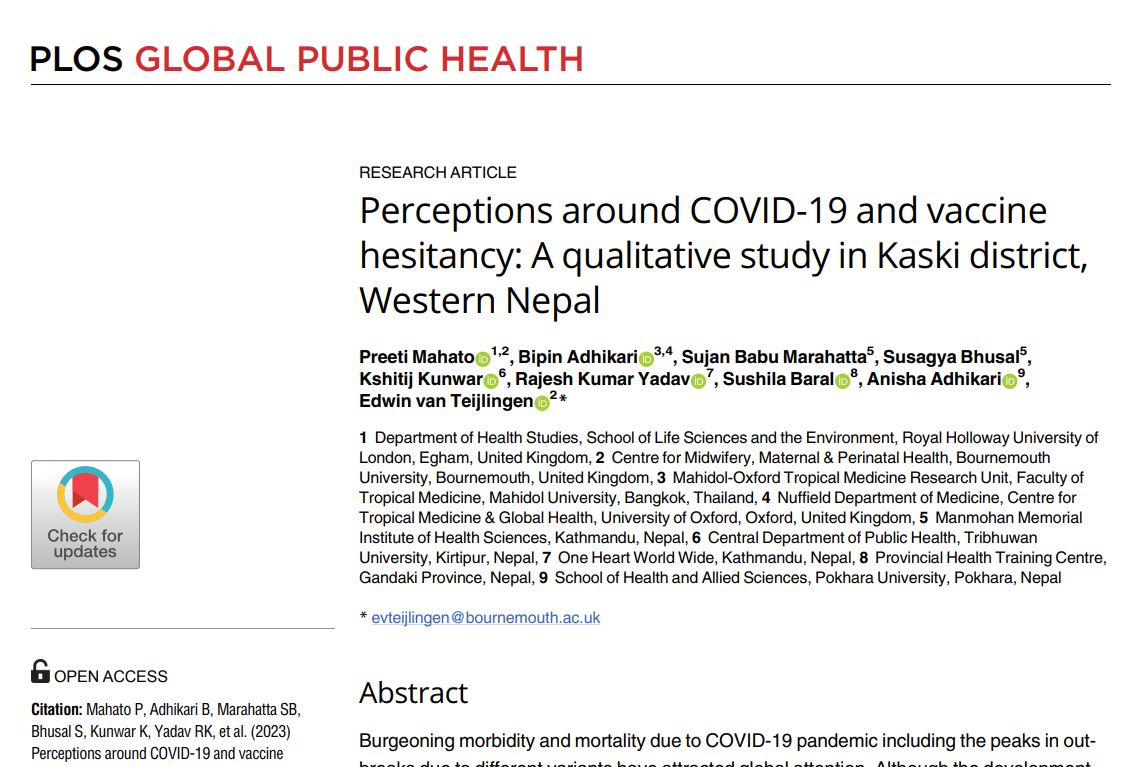
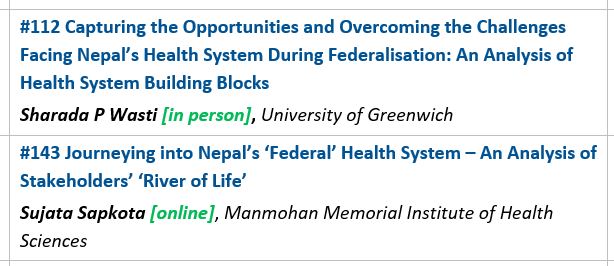
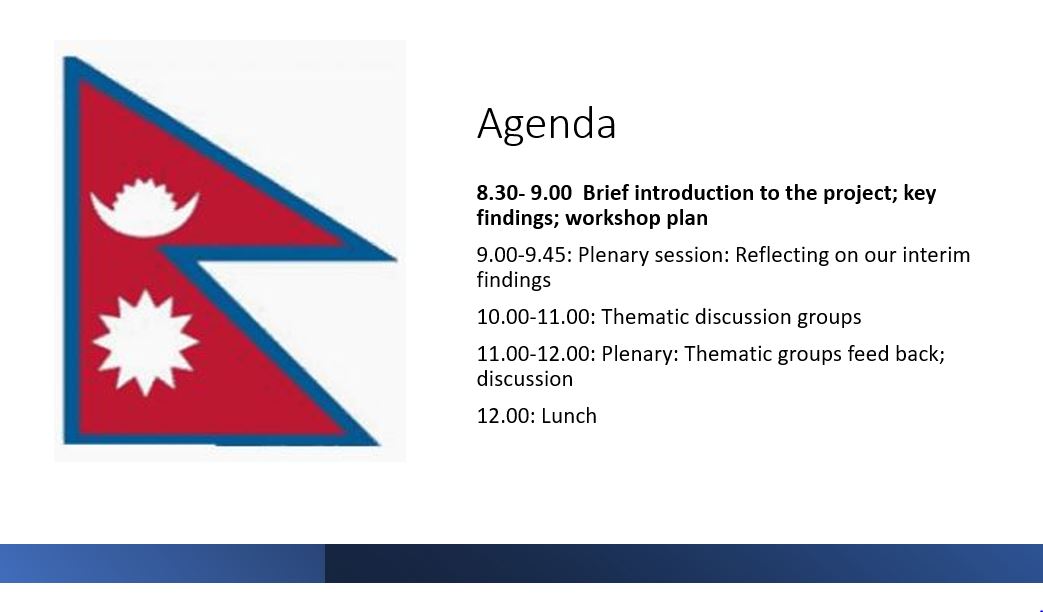
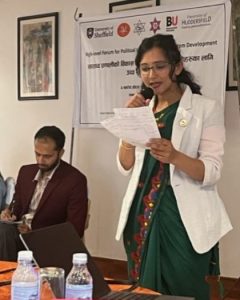
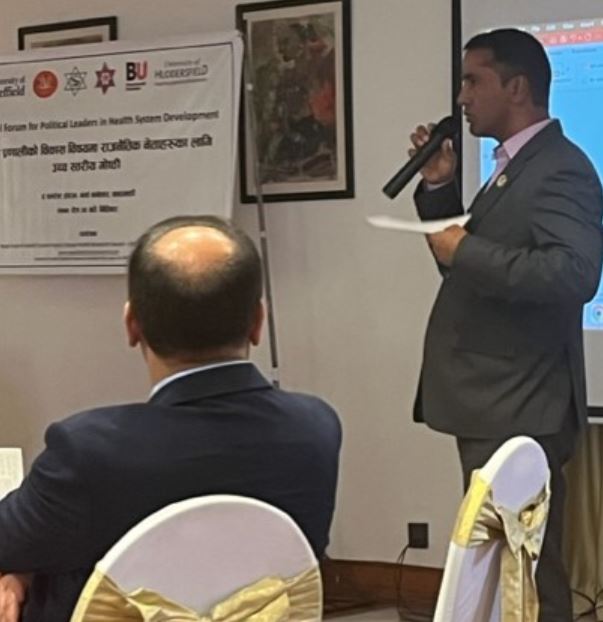
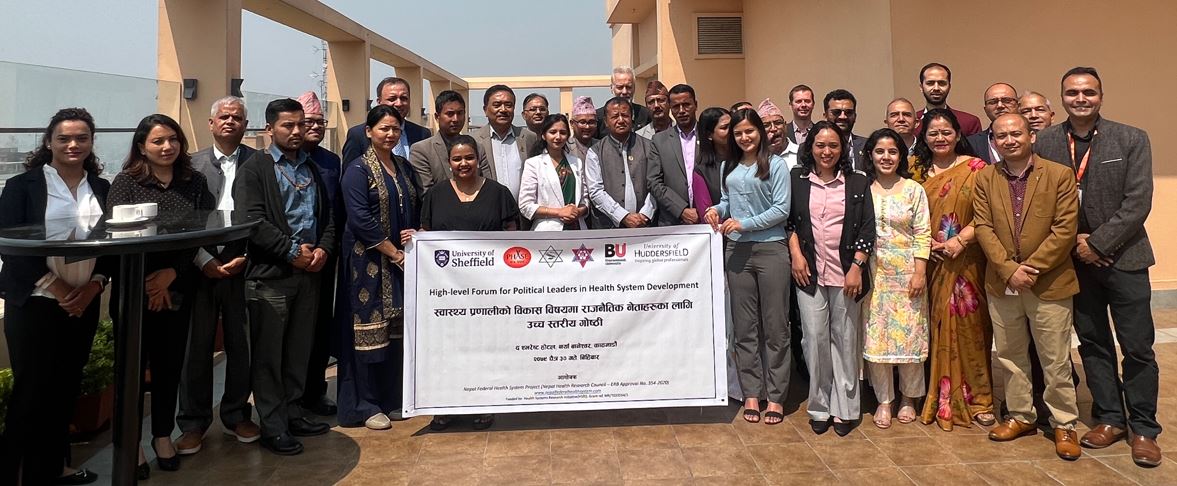


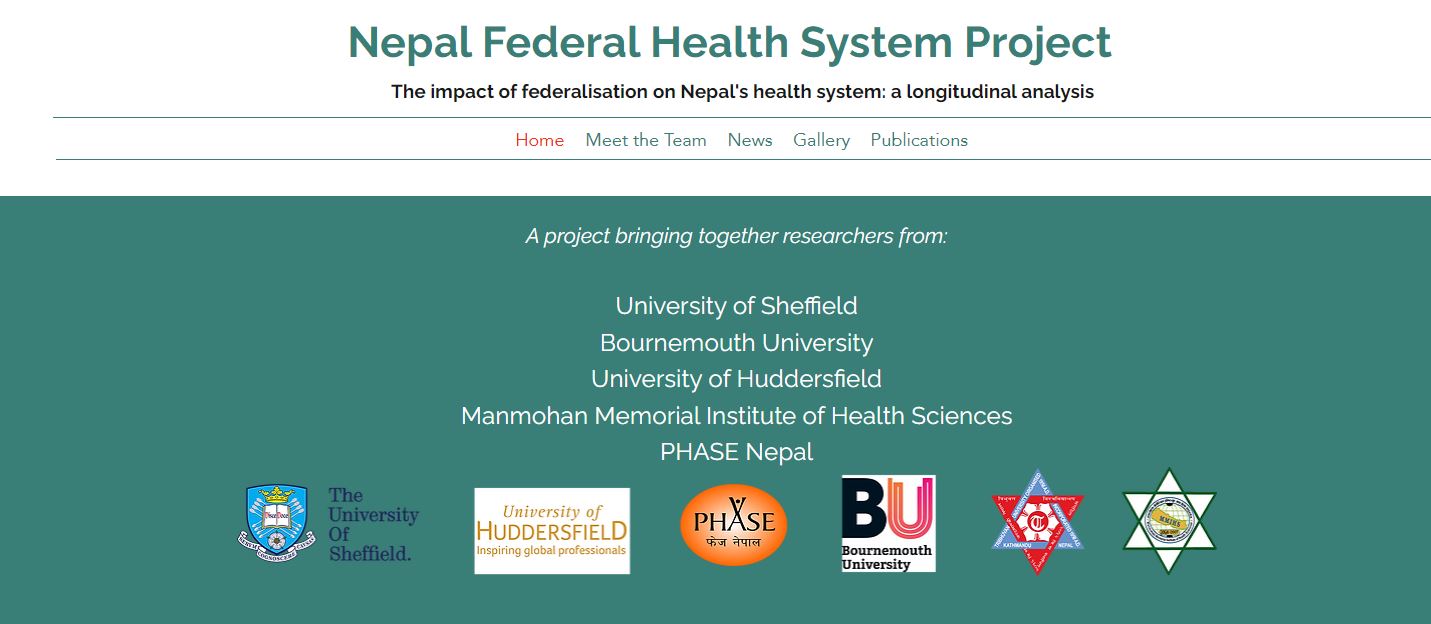

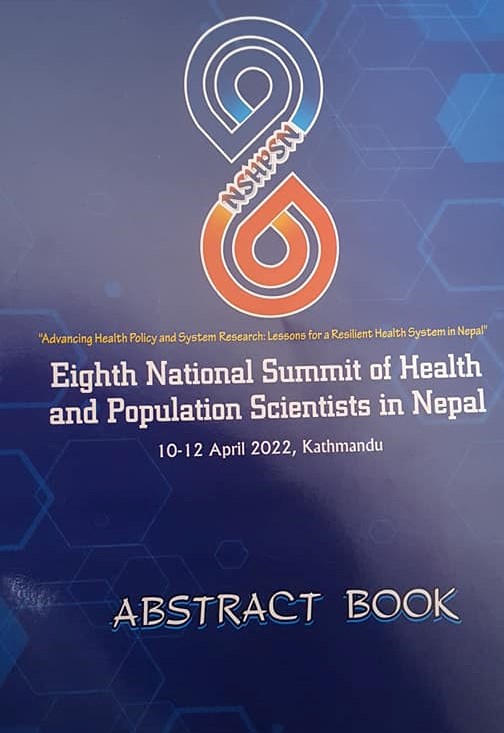
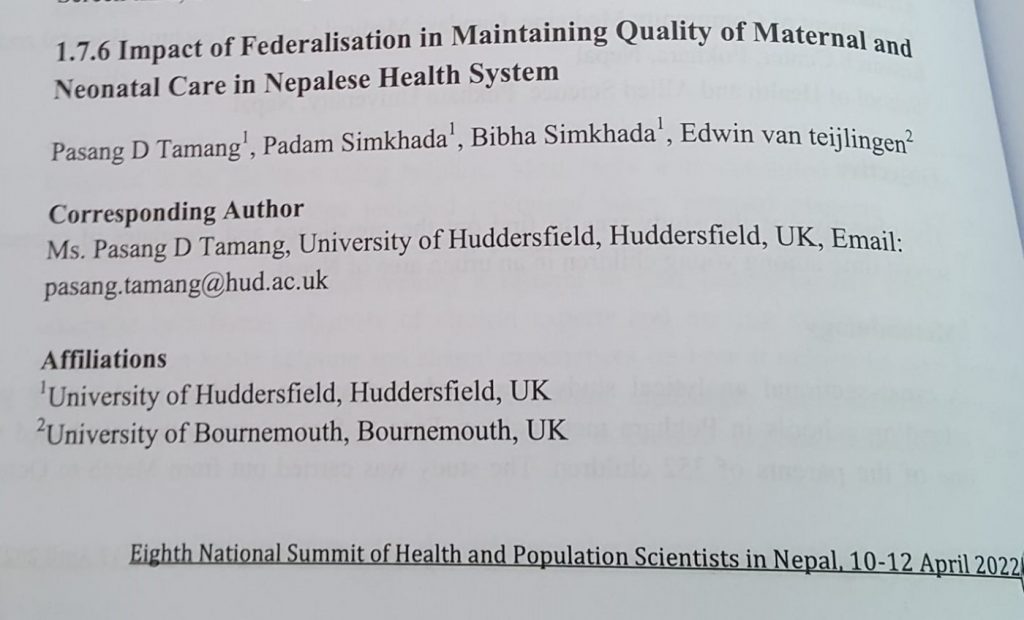











 Beyond Academia: Exploring Career Options for Early Career Researchers – Online Workshop
Beyond Academia: Exploring Career Options for Early Career Researchers – Online Workshop UKCGE Recognised Research Supervision Programme: Deadline Approaching
UKCGE Recognised Research Supervision Programme: Deadline Approaching SPROUT: From Sustainable Research to Sustainable Research Lives
SPROUT: From Sustainable Research to Sustainable Research Lives BRIAN upgrade and new look
BRIAN upgrade and new look Seeing the fruits of your labour in Bangladesh
Seeing the fruits of your labour in Bangladesh ECR Funding Open Call: Research Culture & Community Grant – Apply now
ECR Funding Open Call: Research Culture & Community Grant – Apply now ECR Funding Open Call: Research Culture & Community Grant – Application Deadline Friday 12 December
ECR Funding Open Call: Research Culture & Community Grant – Application Deadline Friday 12 December MSCA Postdoctoral Fellowships 2025 Call
MSCA Postdoctoral Fellowships 2025 Call ERC Advanced Grant 2025 Webinar
ERC Advanced Grant 2025 Webinar Update on UKRO services
Update on UKRO services European research project exploring use of ‘virtual twins’ to better manage metabolic associated fatty liver disease
European research project exploring use of ‘virtual twins’ to better manage metabolic associated fatty liver disease